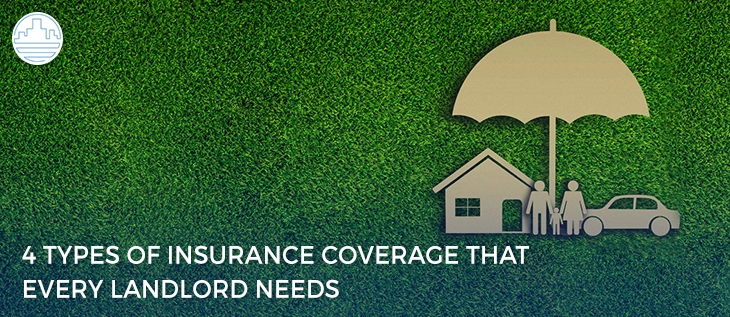
As an investment property owner, you need to be prepared for the worst-case scenario. Building damage, tenant injury, abnormal vacancies, or harassment claims can end up costing you thousands of dollars. This is why a holistic insurance plan is crucial. Yet, choosing the proper insurance plan can be more difficult than it seems. To help guide your insurance selection process, here are four key areas of coverage to look for.
1. Property Coverage
Fires, earthquakes, and floods can leave you with major property damage. The cost of the repairs and renovations that follow such natural disasters can be major as well. Oftentimes, property owners are forced to choose between saving their property and saving their bank account.
Property damage coverage helps you avoid this by covering the cost of any necessary repairs. Although property damage insurance covers damage to the property itself, it doesn’t cover damage to the personal property of tenants. Therefore, you may want to advise your tenants to purchase their own renter’s insurance.

2. Liability Coverage
Regular inspections and repairs help ensure that your property is safe for tenants. Nevertheless, accidents happen. If you’re lucky, no one will be injured. However, this is not always the case. Sadly, tenants and visitors can sometimes get caught in the middle of accidents and incur injuries. Depending on the extent of the injuries, victims may choose to pursue costly lawsuits against you.
Luckily, an insurance plan with liability coverage can protect you and your reputation from harm. According to The Balance, you should strive to have liability coverage of at least $500,000.
3. Tenant Discrimination Coverage
Physical injuries are not the only cause of tenant lawsuits. Specifically, tenants may feel that they are being discriminated against or harassed, leading them to take legal action. However, this type of lawsuit is not covered under general liability insurance, meaning you’ll be left to pay the legal fees on your own.
Therefore, it’s important to select a landlord insurance plan with tenant discrimination coverage. This insurance area covers the cost of legal services and losses incurred from a discrimination lawsuit.
4. Rental Default Coverage
Following a natural disaster, buildings may be temporarily uninhabitable until repairs are complete. The sudden absence of rental income can be quite a blow for investment property owners. This is where rental default coverage comes into play.
Rental default insurance reimburses you for the lost income that results from property damage. You should select a policy that is equivalent to your annual rental income. For instance, if you own five units and the rent for each unit is $2,000 per month, you should select a $120,000 coverage policy.
Natural disasters and accidents happen more often than we realize. By choosing an insurance plan with coverage in these four areas, you and your property will be protected. If you want to know more ways to protect yourself, check out 3 Common Property Investment Blunders that Put you at Risk to learn more.
Learn more about how we can help. Customized solutions for large portfolios!
